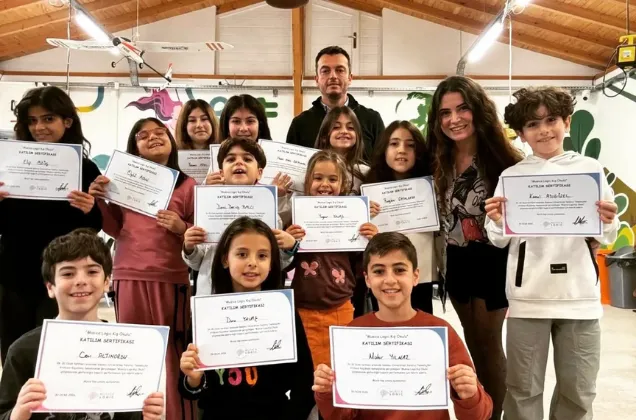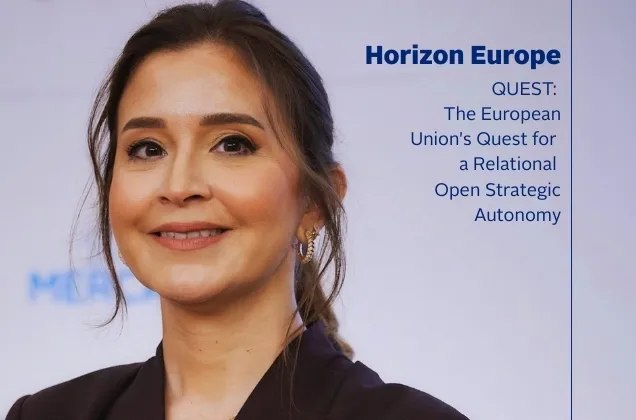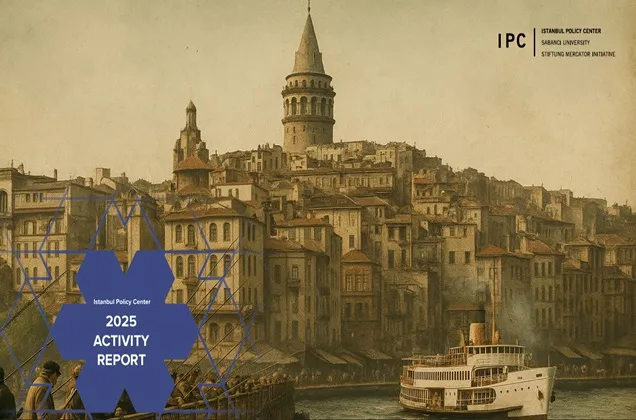25/12/2024
The IICEC Conference, organized by Sabancı University Istanbul International Center for Energy and Climate (IICEC), was attended by the Minister of Treasury and Finance of the Republic of Turkey Mehmet Şimşek as the guest of honor this year. Minister Şimşek made a presentation on global economic growth and Turkish economic policies at the conference held with the theme of 'Economic Growth and Energy: Shaping the Economy of the Future'. Şimşek said, "Turkey will achieve a more efficient and competitive economy through global integration, structural transformation, and inflation."
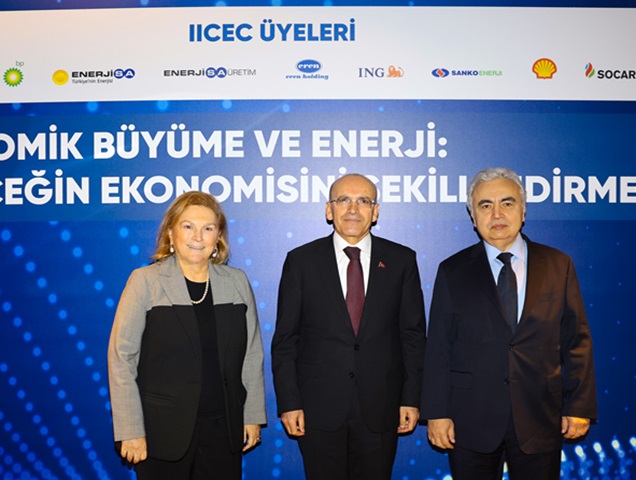
The IICEC Conference, organized annually by the Sabancı University Istanbul International Center for Energy and Climate (IICEC), was held on December 24 with the theme of 'Economic Growth and Energy: Shaping the Economy of the Future'. The conference, attended by the Minister of Treasury and Finance of the Republic of Turkey Mehmet Şimşek as the guest of honor, was hosted by Güler Sabancı, Founding Chair of the Sabancı University Board of Trustees, and Dr. Fatih Birol, International Energy Agency (IEA) Executive Director and IICEC Honorary Chair.
“There are serious challenges facing long-term global growth”
Minister of Treasury and Finance of the Republic of Turkey Mehmet Şimşek shared strategies and priorities regarding global economic growth and Turkey’s economic policies. He touched upon structural factors that limit global growth in the long term. Şimşek said, “When we look at the 5-year growth estimates in the last 30-40 years, we are currently in the period when growth estimates are at their lowest. There are serious challenges facing long-term global growth. The most important factor that will limit oil and natural gas prices is this situation together with China. Increasing protectionism in trade is also one of the most important factors regarding growth. The restriction we face in goods trade has also started to spread to services, investment, and finance. According to a study conducted by the IMF, if it continues like this, there will be a global loss as big as the economies of France and Germany. Because trade is actually the engine of growth, one of these engines is not working as it used to. If the pre-election commitments in America, one of the important engines of the world economy, are implemented, a good scenario does not await the global economy and developing countries.”
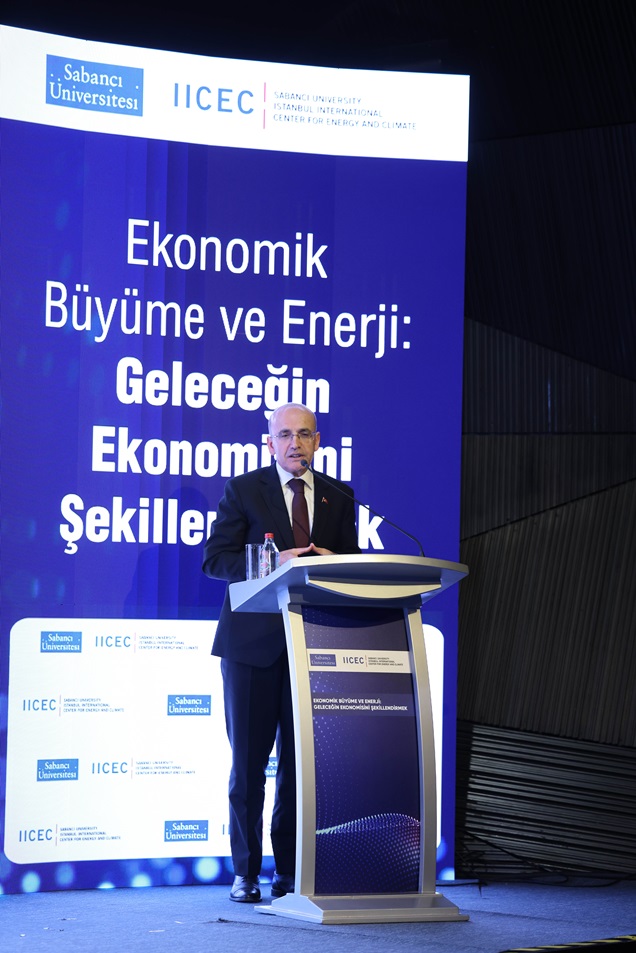
“We will invest more in human capital in the coming period and strengthen the innovation ecosystem”
Emphasizing that Turkey is among the countries that will be least affected by this scenario, Mehmet Şimşek said, “What is happening in the world will affect us, but we will be affected relatively less. Regional integration will gain importance in the world. Logistics bases will gain importance. Turkey has an advantage in this regard because we are at the center of the world. An important component of our long-term strategy also lies in regional integration. Turkey has important advantages. We have great potential that can be activated in Turkey, and in this regard, we will take important steps in the coming period, make reforms, and especially increase the female labor force participation rate. Turkey is in a good position in the artificial intelligence readiness index compared to the average of developing countries. We will invest more in human capital in the coming period. We will strengthen the innovation ecosystem and focus especially on investing in digital infrastructure. Turkey will achieve a more efficient and more competitive economy through global integration, structural transformation, and inflation.” Mehmet Şimşek, who also emphasized that Turkey is at the forefront of the G-20 in renewable energy and its developments in reducing energy intensity, also touched on the importance of climate change-related issues in the coming period.
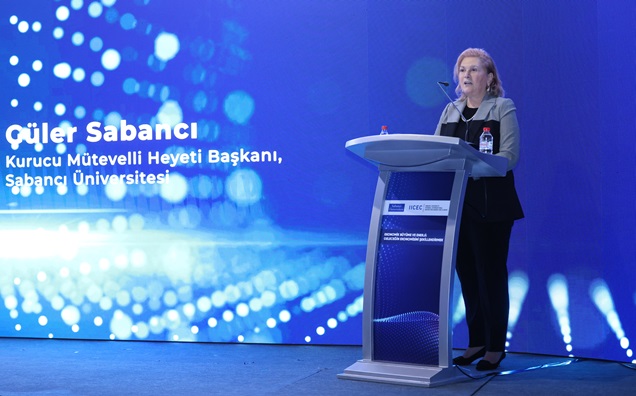
“Energy plays a key role in ensuring economic and social development”
In her speech at the opening of the conference, Güler Sabancı, Founding Chair of the Sabancı University Board of Trustees, said, “In 2024, geopolitical developments, quests to strengthen energy supply security, the striking effects of the climate crisis, and dynamics regarding clean energy technologies were among the prominent topics on the world agenda. Turkey, with its energy strategies, investments, and developing markets, has become one of the largest and most dynamic energy sectors in Europe.”
“Next year, oil markets will have a comfortable period”
Dr. Fatih Birol, Executive Director of the International Energy Agency (IEA) and Honorary Chair of IICEC, focused on three topics in his speech: how oil and natural gas prices will change, the deep transformation the world energy sector has gone through, and trade wars in energy. Birol spoke as follows: “Despite the major political tensions that have been going on for months in the Middle East, oil prices are still around $70. The growth in oil demand is weaker compared to the past. About 15 months ago, at the International Energy Agency, we predicted a global oil demand increase of 1 million barrels for 2024, which is a very low figure compared to the past. If we want to understand energy markets, we need to look at China in particular. More than 60 percent of the increase in global oil demand in the last 10 years was due to China. However, the growth rate of the Chinese economy has slowed, which has affected oil demand. The second reason for the decline in oil demand can be the rise of electric cars. Today, one in every four cars sold worldwide is electric. The increase of this rate is significantly slowing down the growth in oil demand. Another factor in the decline is the increase in oil production in the USA, Canada, Brazil, and Guyana, which I call the “American Quartet”. The increase in production in these four countries has even surpassed the total increase in oil production worldwide. We predict that oil markets will have a more comfortable period in terms of prices next year. On the natural gas side, a large amount of new energy is expected to be shipped from the USA and Qatar between the end of 2025 and 2026-2027. This new amount of energy coming in the next 2.5-3 years will be equal to half of the supply provided in the last 40 years. This situation will transform the natural gas market, where sellers have been strong until now, into a structure where buyers are more advantageous and will create downward pressure on prices. This is a very positive development for countries such as Turkey, which are dependent on foreign energy.”
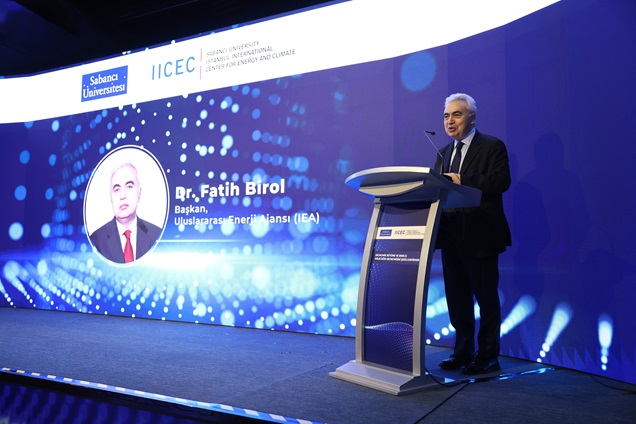
“In the next 10 years, electricity demand will grow 6 times faster than energy demand”
Fatih Birol made the following statements regarding the structural transformation of the world energy sector: “A new era is beginning: The age of electricity. In the last 10 years, energy demand has grown, but electricity demand has grown twice as much. In the next 10 years, electricity demand will grow 6 times faster than energy demand. Electricity usage is increasing. The reasons for this situation can be listed as the increase in air conditioning usage, electric cars, artificial intelligence, and the need for electricity in data centers. Electricity will play an important role in the energy sector. When we look at the geopolitical developments in the world, we foresee that there will be opportunities for cooperation between Europe and Turkey. As an important development, there will be a statement in Europe in 2025 called the “Clean Energy Consensus”. This will determine Europe’s role in tomorrow’s economy. It will be decisive in terms of what steps should be taken in the industrial sector and what kind of a roadmap will be drawn not only within Europe but also with partner countries. This development is an opportunity for Turkey to cooperate with Europe. The geopolitical situation in the world is actually on its way to becoming less productive in terms of international cooperation. Competition will increase and trade wars will come to the fore. In this context, I think that energy industry and trade policies should be blended within the framework of the economic priorities of the countries.”
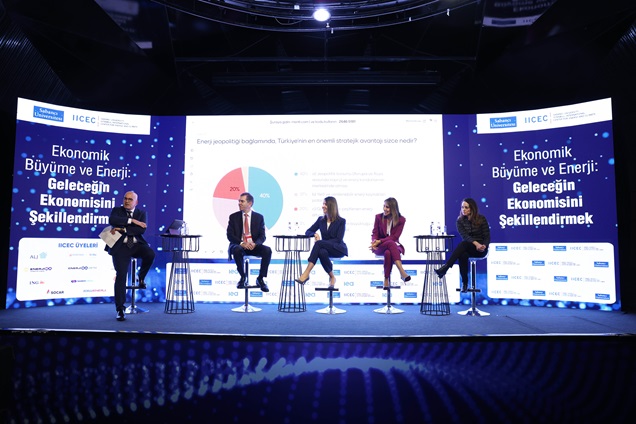
“Energy transformation offers the chance to establish a sustainable economic model”
A panel was held within the scope of the conference, moderated by Sabancı Holding Energy Group President Kıvanç Zaimler, with the participation of the Deputy Director General of the Ministry of Foreign Affairs of the Republic of Turkey Ambassador Zeynep Savaş, JP Morgan Chase Senior Country Officer Mustafa Bağrıaçık, ING Turkey Board Member and Audit Committee Chair Semra Kuran, and European Bank for Reconstruction and Development Turkey Deputy Head Şule Kılıç. The panel covered the critical role played by energy policies in the transformation of world economies. Sabancı Holding Energy Group President Kıvanç Zaimler said the following in his opening speech, “Energy transformation offers the chance to establish not only a cleaner future, but also a stronger and more sustainable economic model. Investments in renewable energies contribute to economic growth by reducing external dependency, while making Turkey’s geopolitical position a strategic center in energy corridors. In line with the 2053 net zero target, we can shape the economy of the future today by accelerating this transformation with the cooperation of the public, private sector, and academia.”
“International cooperation is a must to achieve the goals”
The Deputy Director General of the Ministry of Foreign Affairs of the Republic of Turkey, Ambassador Zeynep Savaş, said, “The main goal of our energy policies is to ensure our energy security, and it has now become connected to our fight against climate change. The energy issue is intertwined with geopolitical considerations, as well as clean energy transformation, competition in accessing critical minerals, digitalization, developments in artificial intelligence, and diplomacy regarding environmental issues. Developments at the global level in recent years are important in terms of our energy diplomacy. International cooperation is a must to be able to implement our energy policies and achieve the goals we have set. In recent years, ensuring energy supply has ceased to be an issue limited to our welfare and has become a strategic issue that also concerns our national security.”
“The finance sector can act as a catalyst in the transformation”
ING Turkey Board Member and Audit Committee Chair Semra Kuran drew attention to the fact that the energy transformation can become a strategic opportunity for Turkey with the right policies, investments, and an inclusive perspective. Kuran said: “In this process, an approach that focuses on inclusiveness, sustainability, and innovation is of great importance. Energy transformation is a long journey, and at this point, it is critical for all stakeholders and sectors to move towards a common goal. The finance sector can act as a catalyst in this transformation. With innovative financing models, inclusive policies, and effective risk management, it can direct capital to projects that create sustainable value in the long term. At the ING Group, which has been building strong foundations in the field of sustainability for over 30 years, we continue to make significant contributions to our country’s green transformation with our global expertise and experience, and we are positioned as one of the action leaders in Turkey in the field of sustainable financing.”
“Sustainable financing mechanisms should be established”
European Bank for Reconstruction and Development Turkey Deputy Head Şule Kılıç said that the European Bank for Reconstruction and Development plays a critical role in Turkey’s achievement of its green energy targets. Kılıç said, “In cooperation with the private sector, we provide financing and technical support to projects that will accelerate the green transformation. The biggest challenge we face in this transformation is the magnitude of the financing needs of the energy transition. Therefore, sustainable financing mechanisms need to be established with the joint efforts of international financial institutions, and the public and private sectors. We believe that in the upcoming period, we will maximize our country’s potential by strengthening policies that will encourage green investments with the cooperation of all stakeholders and developing financing instruments.”

